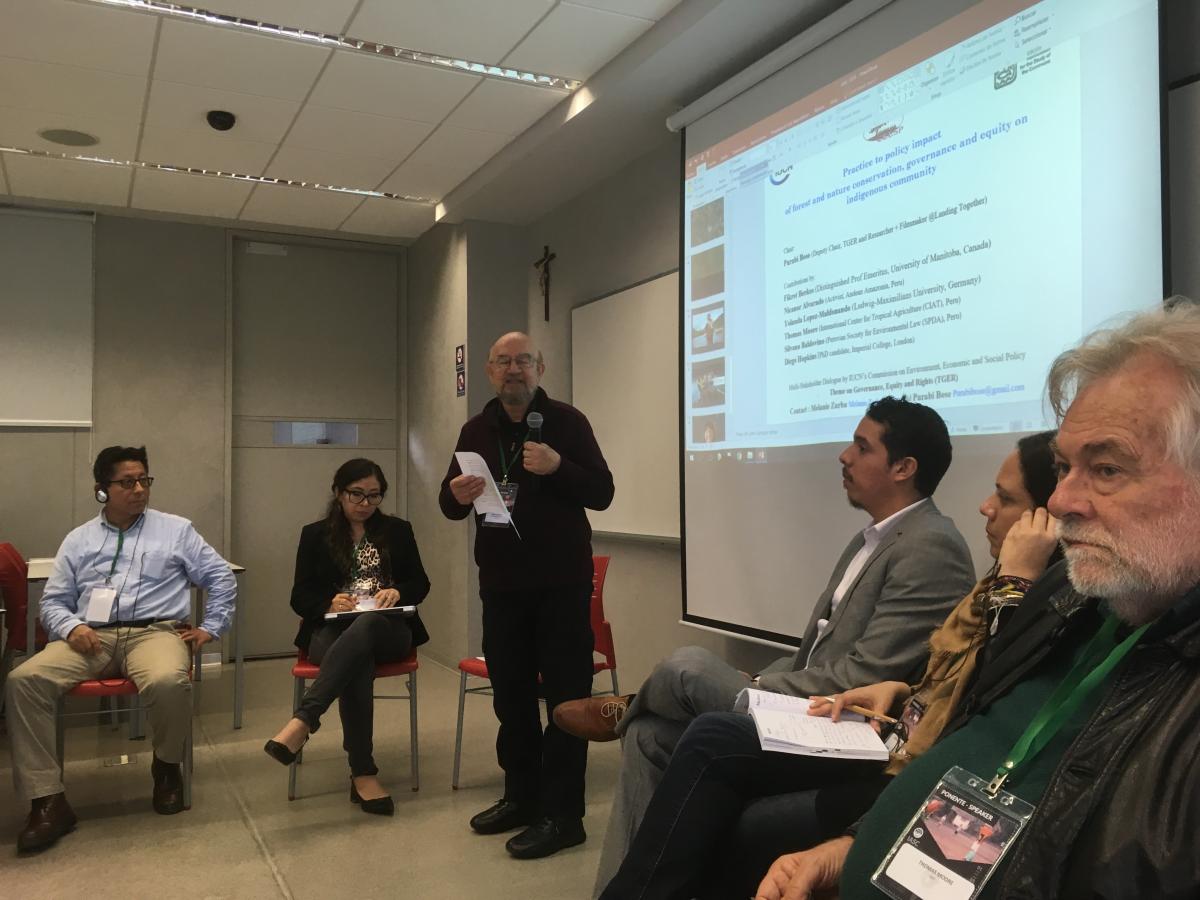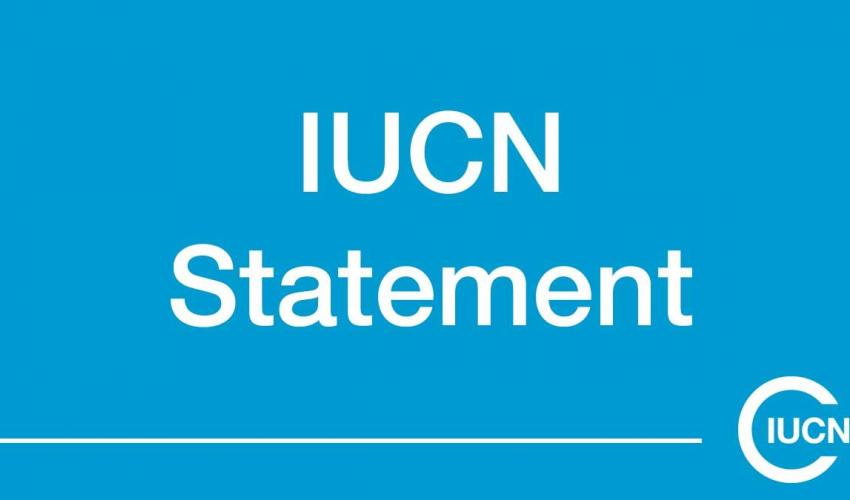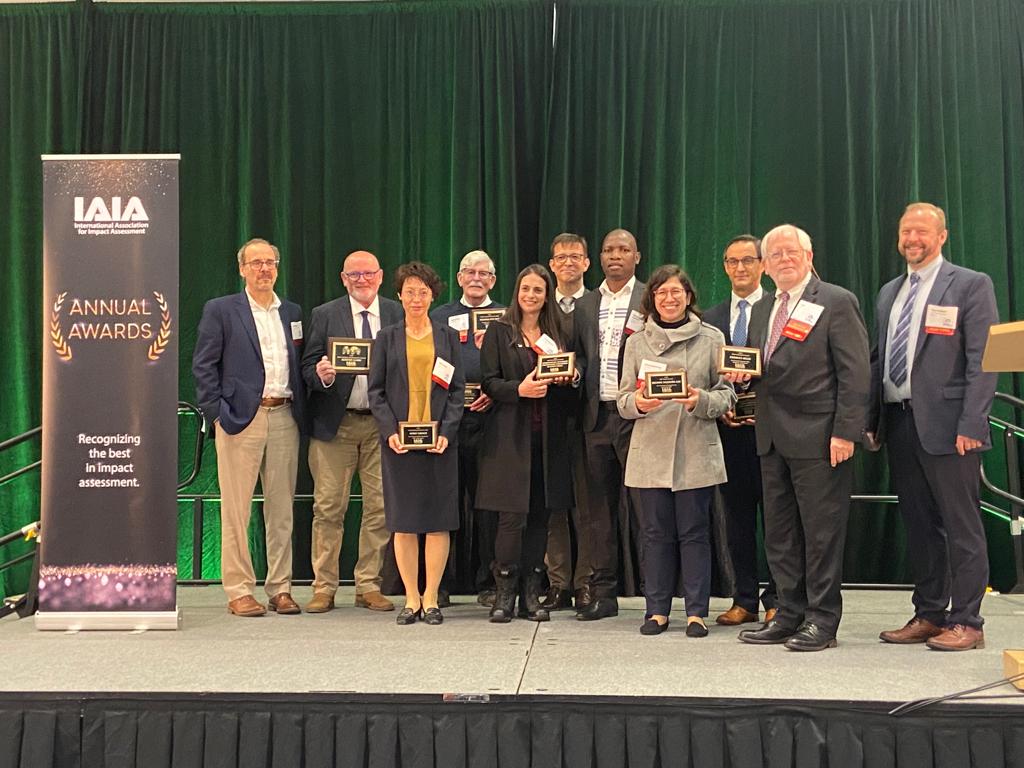Key for Conservation in Indigenous Territories: a multi-stakeholder dialogue
CEESP NEWS - by Dr. Purabi Bose, Deputy Chair of the CEESP Theme on Governace, Equity and Rights (TGER)
How does multi-stakeholder dialogue matter in nature conservation? When engaging with a diverse range of stakeholders, one is already taking a step towards understanding the complexity of nature-human dynamic interactions.

Photo: Melanie Zurba
Members of the CEESP Theme on Governance, Equity and Rights (TGER) led a multi-stakeholder dialogue during the 17th Biennial Conference by the International Association for the Study of Commons (IASC). This was CEESP’s first initiative to organise a session at the IASC Conference that had the theme ‘In Defence of the Commons: Challenges, Innovation and Action’.
It was held July 1-5, 2019, at the Pontificia Universidad Católica del Perú, Lima. The TGER team, Melanie Zurba and Purabi Bose, worked together with the six panellists – each one brought specialised expertise in nature conservation in indigenous territories, mainly in Latin America.
The six panellists were: Nicanor Alvarado, Activist-Academician, Andean Amazonia, Peru, Silvana Baldovino, Environmental lawyer, Peruvian Society of Environmental Law (SPDA), Peru, Thomas Moore, Anthropologist/Practitioner at the International Center for Tropical Agriculture (CIAT), Peru, Yolanda Lopez-Maldonando, Indigenous Rep/ Research Scholar Ludwig-Maximilians University, Germany, Diego Hopkins, Economist, Lawyer and PhD candidate, Imperial College, London, and Fikret Berkes, Distinguished Prof Emeritus, University of Manitoba, Canada.

Prof. Berkes began the dialogue presentation by sharing the trajectory of Conservation and highlighted what the more favorable conditions, specifically commenting on recent changes of international conservation policies such as UNDRIP 2007. Dr. Moore stressed, “National protected areas have been created, for example in Tambopata, Madre de Dios, Peru. We’ve to recognize that nature conservation exists because of the indigenous populations.” On ground water governance system in Yucatan, Mexico, Dr. López-Maldonado explains, “Cenotes, which is an indigenous word for ground water wells, are increasingly becoming degraded, because they do not have a good management and this is where the aspect of good governance comes to light. I’m academic and indigenous and it is my job to make the connection and to work with them.”
Dr. Alvarado and Dr. Hopkins both shared their perspective of working around conservation – one with indigenous communities using social movements and the other focused on the valuation of nature through economic payment. Making a legal perspective, Ms. Baldovino, Director of Biodiversity at SPDA, raised the lack of up-to-date legal tools at the national level, leading to constant threats from corporate sectors promoting illegal and extractive activities and pushing away the indigenous communities – for example, in the Manu National Park struggling to get recognition of their rights.
It was a houseful event, and participants actively engaged in fruitful dialogue post-brief presentations by the panellists. When asked about one take home message that emerged out of this Multi-Stakeholder Dialogue, Pablo, one of the audience members, summarized, “Clearly, we need more such platforms in terms of not just theoretical academicians or practitioners talking to each other, but mixing them together in a panel along with participation of indigenous and local communities. Having this event in Spanish (with simultaneous English interpretation) was a big plus mainly for us to engage in the dialogue.”
 Photo: IASC
Photo: IASC
Image: IASC The IASC is the leading professional association dedicated to the commons. The association, founded in 1989, is devoted to bringing together multi-disciplinary researchers, practitioners, and policymakers for the purpose of improving governance and management, advancing understanding, and creating sustainable solutions for commons, common-pool resources, or any other form of shared resource.
The IASC aims to:
– encourage exchange of knowledge among diverse disciplines, areas, and resource types
– foster mutual exchange of scholarship and practical experience
– promote appropriate institutional design



